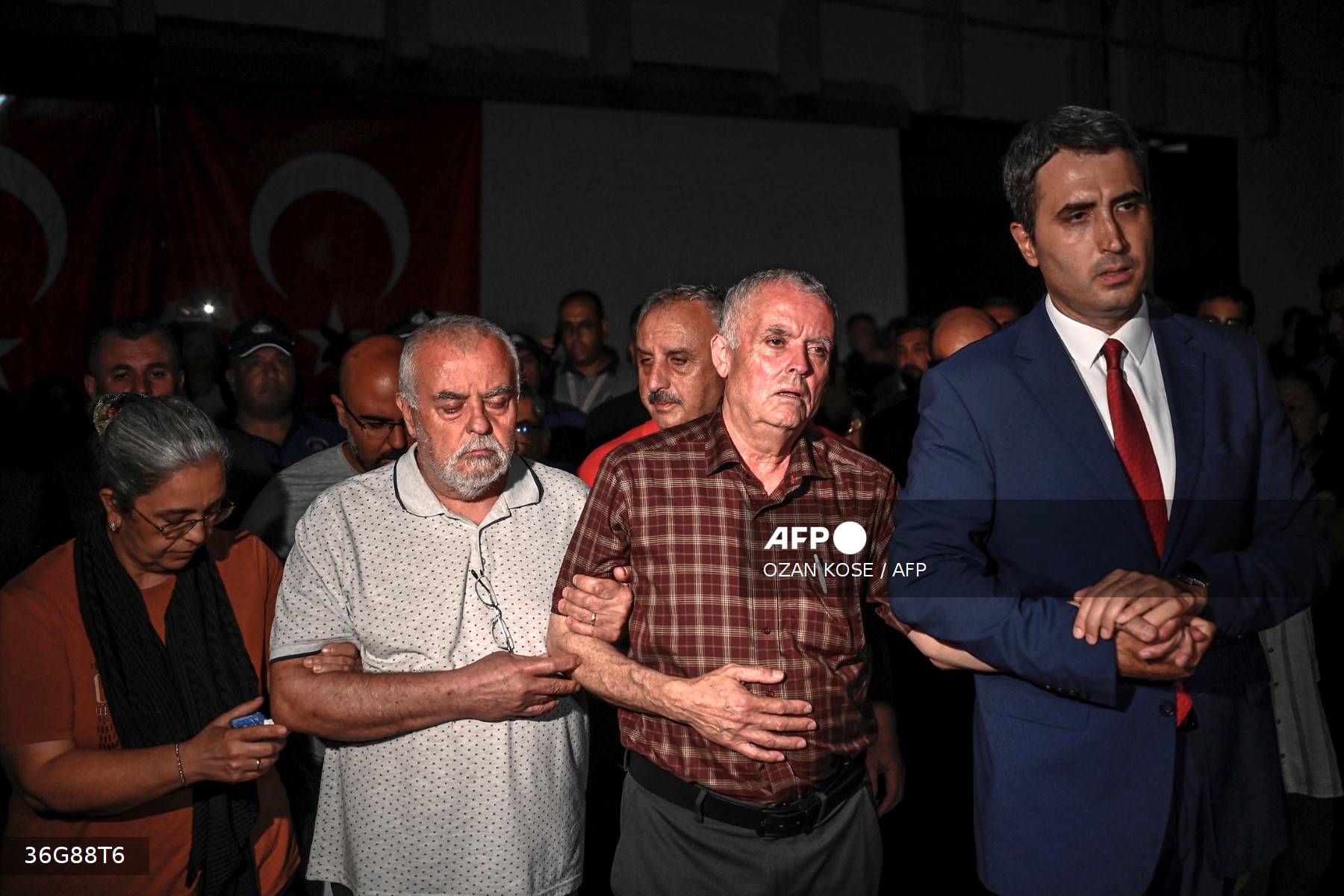Foreign
the era of corruption and impunity in the conduct of government business in Nigeria is over though it won’t be fast- Buhari

President Muhammadu Buhari on Monday confirmed that he will not appoint ministers until September.
Mr. Buhari, who made this known in an opinion article published in the Washington Post, also expressed strong commitment to tackling corruption and institutionalizing good governance in Africa’s most populous country.
About seven weeks after his inauguration, Mr. Buhari said many have started questioning the change he promised during the election, but insisted that the process of change cannot and should not be rushed.
“When cabinet ministers are appointed in September, it will be some months after I took the oath of office,” President Buhari said.
“It is worth noting that Obama himself did not have his full cabinet in place for several months after first taking office; the United States did not cease to function in the interim.
“In Nigeria’s case, it would neither be prudent nor serve the interests of sound government to have made these appointments immediately on my elevation to the presidency; instead, Nigeria must first put new rules of conduct and good governance in place.
“I cannot stress how important it is to ensure that this process is carried out correctly, just as it has been crucial to first install the correct leadership of the military and security services before we fully take the fight to Boko Haram.”
Since its independence, he said, Nigeria has too few examples where it can be said that good management and governance were instituted at national level.
He said it was lack of governance framework and real checks and balances that allowed many past leaders to plunder the country.
Mr. Buhari said the fact that he now seeks Mr. Obama’s assistance in locating and returning $150 billion in funds stolen in the past decade and held in foreign bank accounts on behalf of former corrupt officials is testament to how badly Nigeria had been run.
Mr. Buhari, however, vowed that the era of corruption and impunity in the conduct of government business in Nigeria was over.
On the ongoing war against insurgency in the country, the president said the world is moving closer to the defeat of Boko Haram, the jihadist group that has terrorized hundreds of thousands in the northern states of Nigeria.
In one of his first actions after taking power, Mr. Buhari replaced the heads of the country’s army, navy and the air force in a process that was based on track records and qualifications.
“These new military leaders will be based in Borno State in northern Nigeria, where the headquarters of the armed services has been relocated,” the President said.
“This shift of resources and command directly to the front line, in addition to the replacement of the head of the State Security Service, Nigeria’s intelligence organization, and a new emphasis on working in partnership with our neighbors, has equipped us to take the fight directly to Boko Haram.”
Already, he noted, the country was beginning to see a degrading of Boko Haram’s capabilities as a fighting force.
Instead of confronting the military directly, he said, the insurgents have increased their attacks on civilian population.
The President, however, assured that the new twist in the operations of the insurgent group is a sign it is losing the war.
“While we work to defeat the terrorists, I ask the people of Nigeria and the world for resolve and fortitude,” he said. “The campaign we will wage will not be easy; it may not be swift.
“We should expect stages of success and also moments when it may appear that our advances have been checked. But no one should have any doubt as to the strength of our collective will or my commitment to rid this nation of terror and bring back peace and normalcy to all affected areas.”
Mr. Buhari said during his meeting with President Barack Obama and other U.S. leaders, he would discuss plans for critical reforms, including why he is yet to form a cabinet.
He attributed Nigeria’s inability to defeat Boko Haram as part of the failure of governance, stressing that even the military is not immune to the problem .
To tackle the situation, he said, his government would first instill rules and good governance, followed by the installation of experienced and capable officials to manage state agencies and ministries.
Thirdly, he said his administration would seek to recover funds stolen under previous regimes so that they could be invested in Nigeria for the benefit of the citizenry.
While seeking the support and partnership of the United States, President Buhari said the importance of the fight against terrorism and corruption in Africa’s most powerful economy and largest country, cannot be underestimated.
He said Nigeria required military training and intelligence as its soldiers take the war to Boko Haram insurgents.
He appealed to U.S. business leaders and the Obama administration to help develop governance initiatives that would ensure that Nigeria’s wealth benefits its people, not just a few.
By taking these steps, he said, Nigeria would be positioned to benefit from increased investment – particularly in energy and electricity – from the United States.
“I was elected on a platform of change. I know this is what the people of Nigeria desire more than anything else,” President Buhari said.
“I know they are impatient for action. I realize the world waits to see evidence that my administration will be different from all those that came before. Yet reforming my country after so many years of abuse cannot be achieved overnight.
“In our campaigns against both Boko Haram and corruption, we should remain steadfast and remember, as it is said: Have patience. All things become difficult before they become easy.”
Foreign
Israeli army vows to save hostages

Israeli army vows to save hostages
The Israeli army will use all means to bring back hostages still held in Gaza, its spokesman told a group of foreign journalists on Friday in the war-scarred city of Rafah.
“We need to do everything, everything we can, in all means, to bring them back home,” military spokesman Daniel Hagari told the journalists embedded with the Israeli army.
“This is one of the goals of the war, and we will achieve it.”
Rear Admiral Hagari was speaking in front of a shaft in the Tel al-Sultan neighbourhood of Rafah that connects to a tunnel where Israel says Hamas shot dead six hostages late last month.
Their deaths spurred an outpouring of grief in Israel as well as anger at the government, which critics say is not doing enough to reach a deal that would end the war in Gaza and secure the remaining hostages’ release.
The war was triggered by Hamas’s unprecedented attack on Israel, which resulted in the deaths of 1,205 people, mostly civilians, according to an AFP tally based on Israeli official figures. The count includes hostages killed in captivity.
The militants also seized 251 hostages, 97 of whom are still in Gaza, including 33 the Israeli military says are dead.
Israel’s retaliation has killed at least 41,118 people in Gaza, according to the territory’s health ministry. The UN human rights office says most of the dead have been women or children.
Israel has denied independent access to Gaza for international media during the war, now in its 12th month.
Rafah, in the far south of Gaza, has been hit hard by the fighting, and AFPTV footage on Friday showed streets lined with the bombed-out shells of buildings, many partially collapsed with rubble spilling into the streets.
Hagari said the destruction was intended to wipe out the network of tunnels under the city.
“You have a maze of tunnels here, a maze of tunnels here in Rafah, underneath the houses. This is why the destruction,” he said.
“There is even not one point left without a tunnel here in Rafah.
“In order to defeat (Hamas) we need to take control of this underground system.”
The army also showed journalists the Philadelphi Corridor, a narrow strip of land that has emerged as a key sticking point in talks towards a possible ceasefire mediated by Egypt, Qatar and the United States.
Israeli Prime Minister Benjamin Netanyahu said last week that retaining control of the corridor was important to stop any arms smuggling into Gaza from Egypt.
Hamas is demanding a complete Israeli withdrawal from the territory.
Foreign
Hamas Frees Two Israeli Women From Gaza

Hamas Frees Two Israeli Women From Gaza
Hamas on Monday (23 October) said it had freed two Israeli women who were among the more than 200 hostages taken during its 7 October rampage in southern Israel while sources said the US had advised Israel to hold off on a ground assault in the Gaza Strip.
“We decided to release them for humanitarian and poor health grounds,” Abu Ubaida, spokesman for the armed wing of the Palestinian Hamas militant group, said on Telegram.
The Israeli prime minister’s office issued a statement confirming that the women, whom it named as Nurit Cooper, 79, and Yocheved Lifshitz, 85, were handed over to the Israeli military and would be taken to a medical facility.
The two were kidnapped from Kibbutz Nir Oz, near the Gaza border, along with their husbands, who were still held by Hamas, it added. Hamas freed them after releasing an American woman and her daughter on Friday.
All four were seized in the 7 October cross-border assault in which the Islamist Hamas killed 1,400 people.
In public, the United States has stressed Israel’s right to defend itself but two sources familiar with the matter said the White House, Pentagon and State Department have stepped up private appeals for caution in conversations with the Israelis.
A US priority is to gain time for negotiations to free other hostages, especially after Friday’s unexpected release of Americans Judith and Natalie Raanan on Friday, said the sources, who spoke before the hostage releases were announced on Monday.
Asked about the possibility of a ceasefire, US President Joe Biden said: “”We should have those hostages released and then we can talk.”
Israel pounded hundreds of targets in Gaza from the air on Monday as its soldiers fought Hamas militants during raids into the besieged Palestinian strip where deaths are soaring and civilians are trapped in harrowing conditions.
Gaza’s health ministry said 436 people had been killed in bombardments over the last 24 hours, most in the south of the narrow, densely populated territory, next to which Israeli troops and tanks have massed for a possible ground invasion.
The Israeli military said it had struck more than 320 targets in Gaza over 24 hours, including a tunnel housing Hamas fighters, dozens of command and lookout posts, and mortar and anti-tank missile launcher positions.
The Israeli bombardment was triggered by the 7 October assault, the bloodiest episode in a single day since the state of Israel was founded 75 years ago.
With Gaza’s 2.3 million people running short of basics, European leaders looked set to follow the United Nations and Arab nations in calling for a “humanitarian pause” in hostilities so aid could reach them.
Foreign
Prince Williams Ends Homelessness In The Uk

Prince Williams Ends Homelessness In The Uk
PRINCE WILLIAMS– The Prince of Wales has visited Sheffield as he launches a five-year campaign to end homelessness in the UK.
The city is one of six places to benefit from Prince William’s charitable fund.
The project means there will be a team in Sheffield and funding for the council and other agencies to support those who don’t have a stable home.
Prince William visited a youth project in the city as part of his tour.
Young people from Reach Up Youth met with the royal visitor to share their stories and discuss the work the organization is doing to support those struggling.
In Sheffield, the prince’s scheme, Homewards, will focus on families experiencing hidden homelessness, including those living in temporary accommodations such as hostels and shelters.
The city council said it would also address an issue where a disproportionate number of people of black and minority ethnic backgrounds were becoming homeless.
The authority added that teams, made up of a range of partners, would “further strength their links and the ability to direct people to services that they might need”.
The council said the programme will aim to reach families before they risk losing their homes and plans on exactly how it will work are being developed over the coming months
.
Kate Josephs, chief executive for Sheffield City Council, said: “We are really proud that Sheffield has been selected to be part of Homewards.
“No one should find themselves in crisis, without a roof over their heads and this is an incredible opportunity to prevent people and families from becoming homeless.
“This programme, created by Prince William, will enable us to focus efforts, with much-needed financial backing, on getting people the help and support they need before they lose their homes.”
-

 celebrity radar - gossips6 months ago
celebrity radar - gossips6 months agoWhy Babangida’s Hilltop Home Became Nigeria’s Political “Mecca”
-

 society5 months ago
society5 months agoReligion: Africa’s Oldest Weapon of Enslavement and the Forgotten Truth
-

 society6 months ago
society6 months agoPower is a Loan, Not a Possession: The Sacred Duty of Planting People
-

 news7 months ago
news7 months agoTHE APPOINTMENT OF WASIU AYINDE BY THE FEDERAL GOVERNMENT AS AN AMBASSADOR SOUNDS EMBARRASSING














You must be logged in to post a comment Login